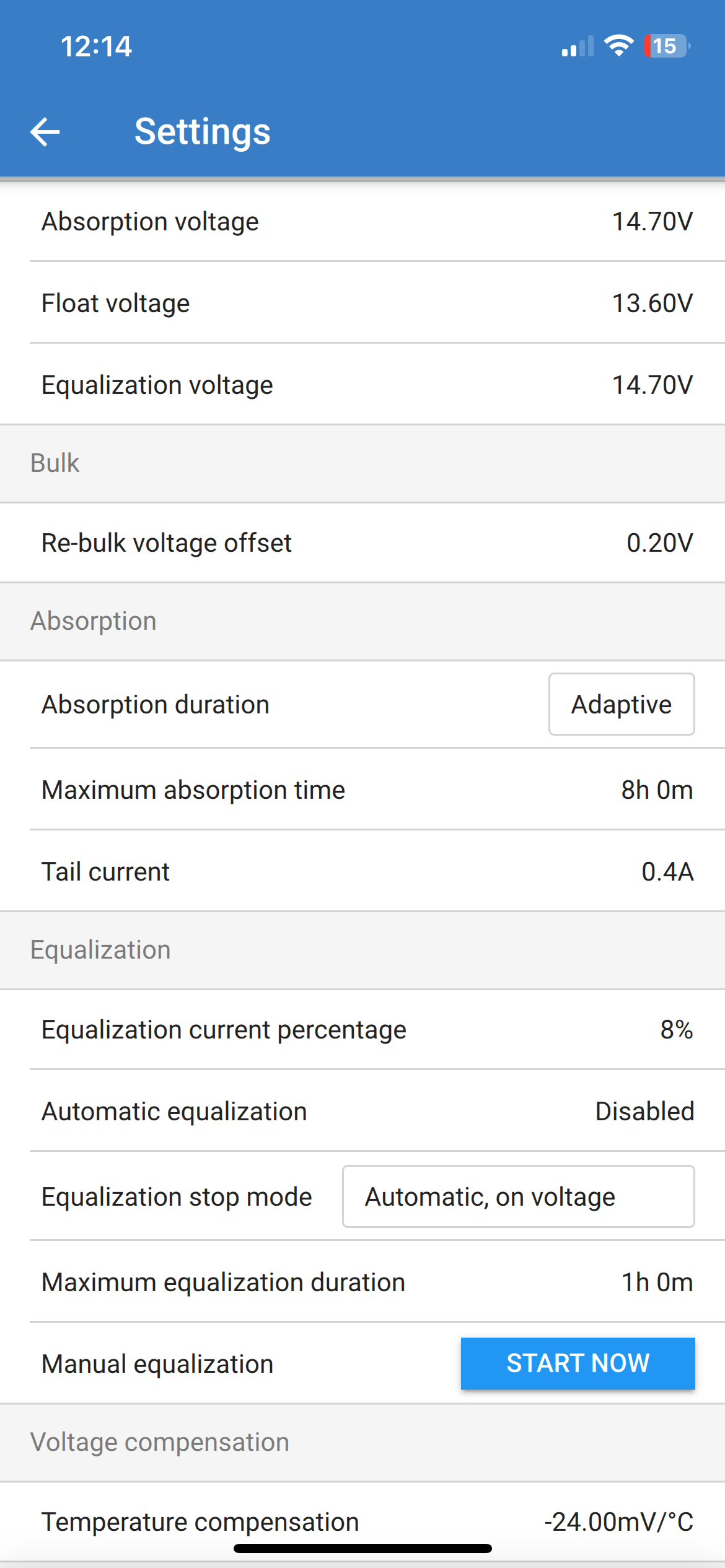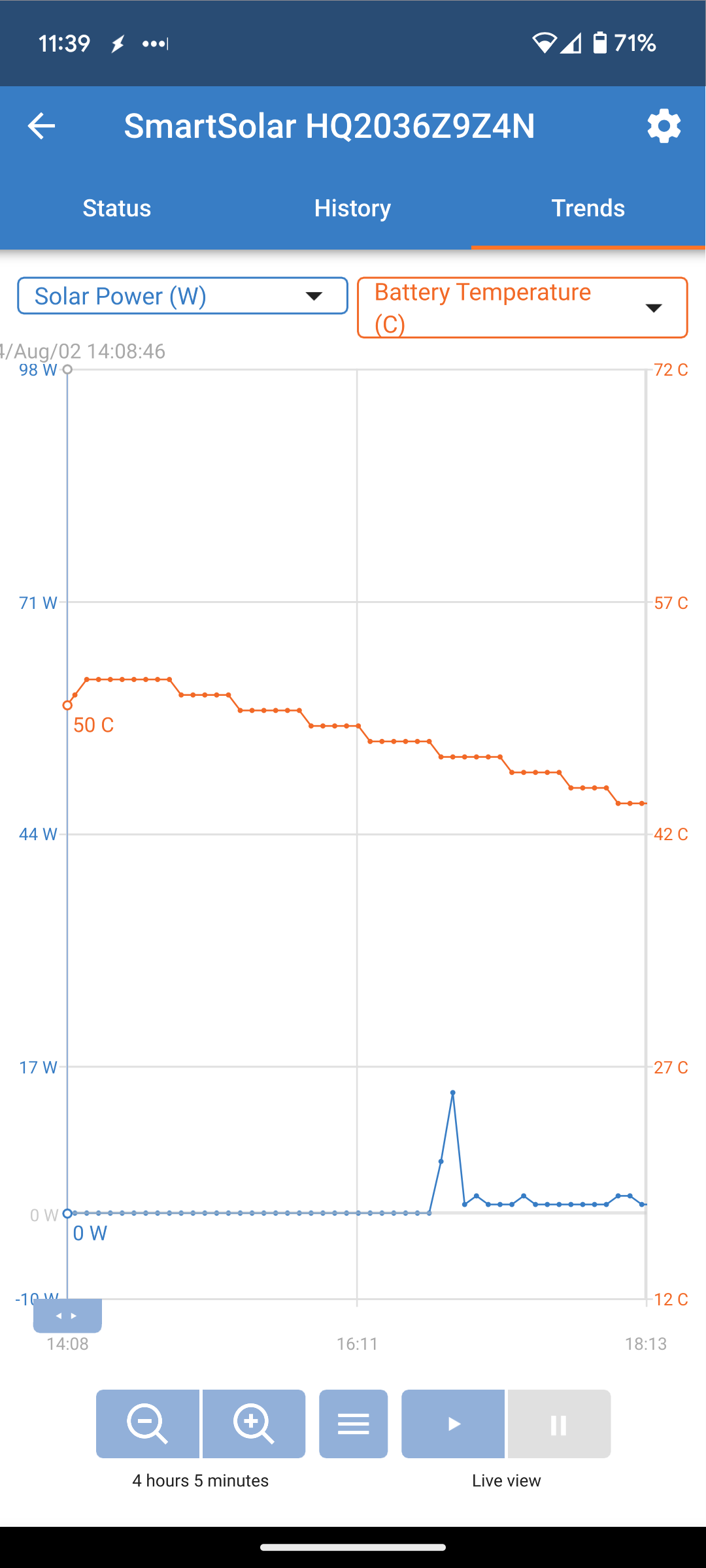***UPDATE***
- Added replies below initial post with more information
- Looks like charge controller is working as designed, though this behavior really seems like a major design issue
- Would greatly appreciate it if a Victron representative or expert can chime in
- Why does the temperature compensation stop and decrease voltage -20C? Colder should mean an increase in voltage compensation
- Why does the voltage dramatically drop between +48 to +60°C?
- Why does the voltage remain constant above +60C? This would 'cook' the battery if temperature compensation is enabled
For reference, I was recently on a trip where the outside air temperature alone was >+47°C. The battery sense detected a battery temperature in the +50 to +60°C zone causing the charger to stop charging all together.
Hello,
I've been troubleshooting an issue with my SmartSolar 75/15 which fails to output power to the battery even though all indications should allow the charger to output to the battery.
I believe I've figured out the conditions and have taken some screenshots and a screen recording of the events happening in real-time to help address the issue. This issue is easily reproducible and from what I've searched may be something others have come across but hadn't nailed down the exact conditions.
Using a heat gun, I heated up the SmartShunt temperature sensor causing it to start and stop charging depending on the VE.Smart Networking temperature sense.
Behavior:
- CC stops charging when VE.Smart Networking temperature sense is between 50°C - 60°C
- CC resumes charging outside of these ranges < 47°C or > 60°C
- Disabling Temperature Compensation resumes charging
- Leaving VE.Smart Networking resumes charging
Since the battery and SmartShunt temperature sense is in the engine compartment, the CC output is constantly turning on and off. This seems like a bug and doesn't make "sense".
Configuration
- SmartSolar 75/15 (VE.Smart Networking enabled)
- SmartShunt 500A w/temperature sensor (VE.Smart Networking enabled)
- Battery Type: Odyssey AGM (Operating temp -40°C to 80°C)
- Battery Location: Vehicle Engine Compartment
- SmartShunt Location: Vehicle Engine Compartment
- CC Location: Inside occupant cabin







